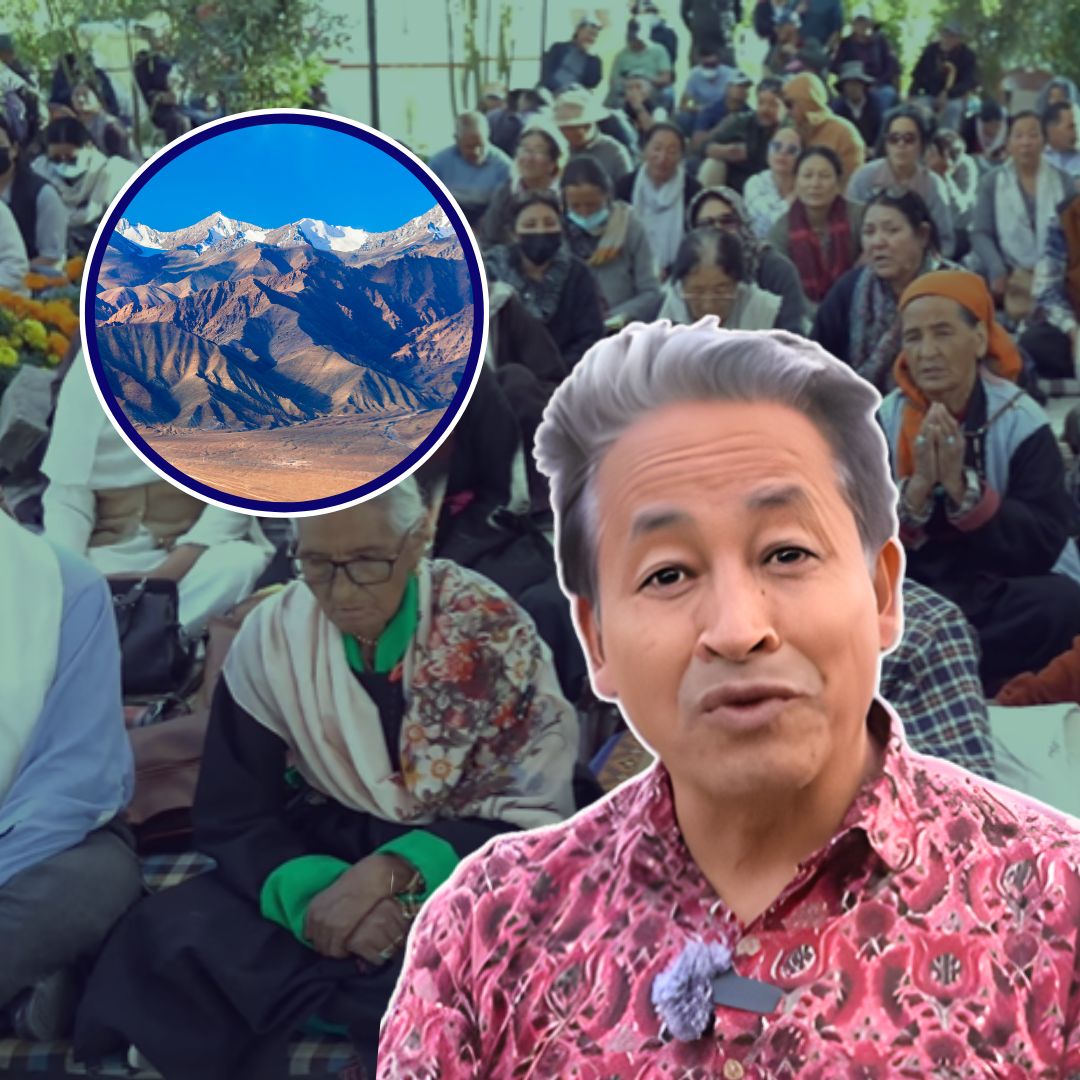Sonam Wangchuk, the Ladakh-based engineer, educator, and climate innovator, has been honoured by TIME magazine as one of the “100 Most Influential Climate Leaders of 2025,” under the “Defenders” category. This accolade acknowledges his groundbreaking work in developing “ice stupas,” artificial glaciers which store winter water in towering cone-shaped ice formations, helping villages in Ladakh survive summer water shortages.
His innovations have not only revolutionised water conservation in one of the world’s most ecologically fragile regions but have also been replicated in countries like Nepal, Chile, Pakistan, and Switzerland. Wangchuk’s global environmental contribution is particularly striking against the backdrop of his detention under India’s National Security Act (NSA), following his protests demanding greater autonomy and constitutional protections for Ladakh.
His wife, Gitanjali Angmo, highlighted this irony on social media, drawing attention to the stark contrast between international praise and domestic political repression.
Innovation Inspired by Tradition and Science
Born and raised in Ladakh’s high-altitude desert, Wangchuk grew up listening to local tales about glaciers. Using this indigenous knowledge and modern engineering, he channelled glacier streams through pipelines to create ice stupas during Ladakh’s harsh winters, where temperatures can drop below -20°C.
These artificial glaciers, reaching up to 12 stories high, store millions of gallons of water that slowly melts in the dry summer months, providing critical irrigation when natural water sources fail. In recent years, Wangchuk’s team has enhanced these structures with automated, weather-responsive valves, termed “smart stupas”, developed in collaboration with local student-engineers, making them more efficient and less labour-intensive.
This blend of cultural heritage and technology reflects a scalable model of climate adaptation that resonates globally.
The Political Context and Its Implications
Wangchuk’s recognition comes at a time of intense political tension. Detained since late September 2025 during a 35-day fast-unto-death protest demanding full statehood for Ladakh and constitutional safeguards under the Sixth Schedule, he faces charges under the NSA, a law critics say is often used to suppress dissent.
The Supreme Court of India has intervened, hearing petitions against his detention and seeking responses from the central and Ladakh administrations. His arrest has sparked widespread debate on the criminalisation of environmental and regional activism in India.
Observers stress that Wangchuk’s leadership in climate innovation and indigenous empowerment represents a vital bridge between environmental sustainability and socio-political rights, an intersection often fraught with conflict.
The Logical Indian’s Perspective
Sonam Wangchuk’s story exemplifies how grassroots innovation and indigenous knowledge can offer powerful solutions to climate change, especially in vulnerable mountain regions. Yet, the stark contradiction between his global acclaim and detention raises important questions about how state power treats those who challenge the status quo for social and ecological justice.
The Logical Indian stands for celebrating and protecting such change-makers who embody empathy, resilience, and forward-thinking ideas. Their work teaches us that sustainable development is inseparable from human rights and cultural autonomy.
While his own Government is busy proclaiming @Wangchuk66 an anti-national and a threat to national security under the NSA, the #TimeMagazine is celebrating him as “the world’s most influential leaders driving business to real climate action” in its 2025 #TIME100Climate list!…
— Gitanjali J Angmo (@GitanjaliAngmo) October 31, 2025













